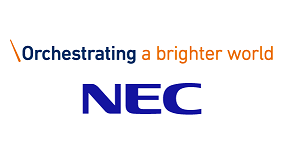The dawn of Web 3.0 — and what it means for the financial world of today and tomorrow
Technology partners can support financial institutions in areas such as data governance and information security, says NEC.

No man is an island, and neither are companies. Photo: Shutterstock
Following the increasingly breakneck pace of digitalisation in recent months, the world now stands on the frontier of a new era of banking and digital finance. As with any starting point, there are new considerations and challenges, but ultimately, more stands to be gained from new opportunities.
To prepare for the future, businesses must first know where to look. Driven by the rise of Web 3.0, two key areas of disruption to watch out for are embedded finance and data governance.
Embedded finance is expected to have a major impact as technological developments allow for better software integration of financial services with enhanced value propositions for corporate customers. This will remove client pain points, enhancing customer experience and brand loyalty.
Similarly, a tech-centred society means data governance will gain an increasingly important role – corporate clients will need support as they transition to data-driven operations while adhering to stringent compliance and risk management protocols.
According to Mr Daichi Iwata, head of the digital integration division at NEC Corporation, organisations must put data governance into practice to fully reap the benefits of a digital ecosystem.

“You really need to manage where the data is stored and understand what the data means. Managing a data catalogue is probably the first thing for many corporations to do,” he shared, adding that by maintaining quality and control over an organisation’s data, companies can make the most of the available offerings in today’s economy.
Adopting more sophisticated technologies and governance policies calls for greater understanding of the available options. The key point of differentiation for many financial institutions will be the agility at which they can learn, adapt and break the mould to become first adopters.
To pave the way forward, Mr Iwata said that collaboration with technology companies is key. “By having partnerships among technology companies, banks and large businesses, we can maximise value for all stakeholders,” he said during a recent seminar conducted by NEC and Sumitomo Mitsui Banking Corporation (SMBC).
TRANSFORMATION PARTNERS
The importance of collaboration is particularly evident amid times of rapid change. The needs and wants of society are shifting at a furious pace, as consumers and businesses alike seek new and differentiated experiences enhanced by technology.
Mr Suresh Neelakantan, business development director of NEC Asia Pacific’s Value Chain Innovation Laboratory, shared that technology partners can support businesses and banks by offering a 360-degree view spanning essential areas such as open-banking application programming interface adoption, cloud-driven data management and information security.

“We do not bring the banking domain expertise – we bring the technology and the data expertise. This is how the Web 3.0 world will evolve; it will be a partnership-driven world,” he said.
Building upon this, Mr Keiji Matsunaga, head of Asia Innovation Center at SMBC, identified two factors when it comes to building quality partnerships between technology companies and financial institutions.
“First, there must be a clear, complementary relationship in terms of capabilities. For example, having invoice reconciliation tools that combine with bank payment functions, or having data analytics functions to forecast cash flow and support working capital solutions,” he shared.
“The second aspect is to have the openness to join a wider ecosystem and bring value to customers. Digital is moving away from exclusivity, and customers now want to choose functionalities that fit their needs. They prefer bank- and vendor-agnostic solutions,” continued Mr Matsunaga.

A COLLABORATIVE EXPERIENCE
In a bid to lead the charge in the world of digital finance, NEC — a technology company with strengths in artificial intelligence and data governance — has joined hands with SMBC, a company specialising in delivering financial products.
Together, the two firms offer enhanced insights from corporate enterprise resource planning (ERP) and financial data. This creates natural synergies with large companies in the Asia Pacific that are looking to gain greater agility when it comes to responding to changes in the business environment.
An example of the two firms’ collaborative venture is Biz-Create, a business matching platform that allows corporates to list their businesses along with their particular needs. The platform then matches companies that can work together to unlock economies of scale. This helps to create benefits such as efficient procurement and lower costs on both sides.
Mr Iwata shared that the partnership with SMBC seeks to bridge gaps in the value chain by supporting large industries with long histories that lack digital capabilities. “If these corporations, with large supply chains, can harness the power of digital technologies, they can greatly enhance their financial and business operations,” he said.
Through their partnership, NEC and SMBC are working to co-create an ecosystem that includes platforms providing data governance, data security, analytics and visualisation for an improved customer experience.
At the heart of it all, the two firms are looking to establish new-age partnerships for organisations seeking greater transparency, flexibility and openness as they strive to scale into the future of fintech.
No man or company is an island. Only by building trust and journeying as a collective can organisations go further and tap into the true potential of global value chains.
To learn more about how NEC Corporation’s financial solutions and services can set organisations on the right track towards tomorrow’s world, watch highlights from the recent seminar.















